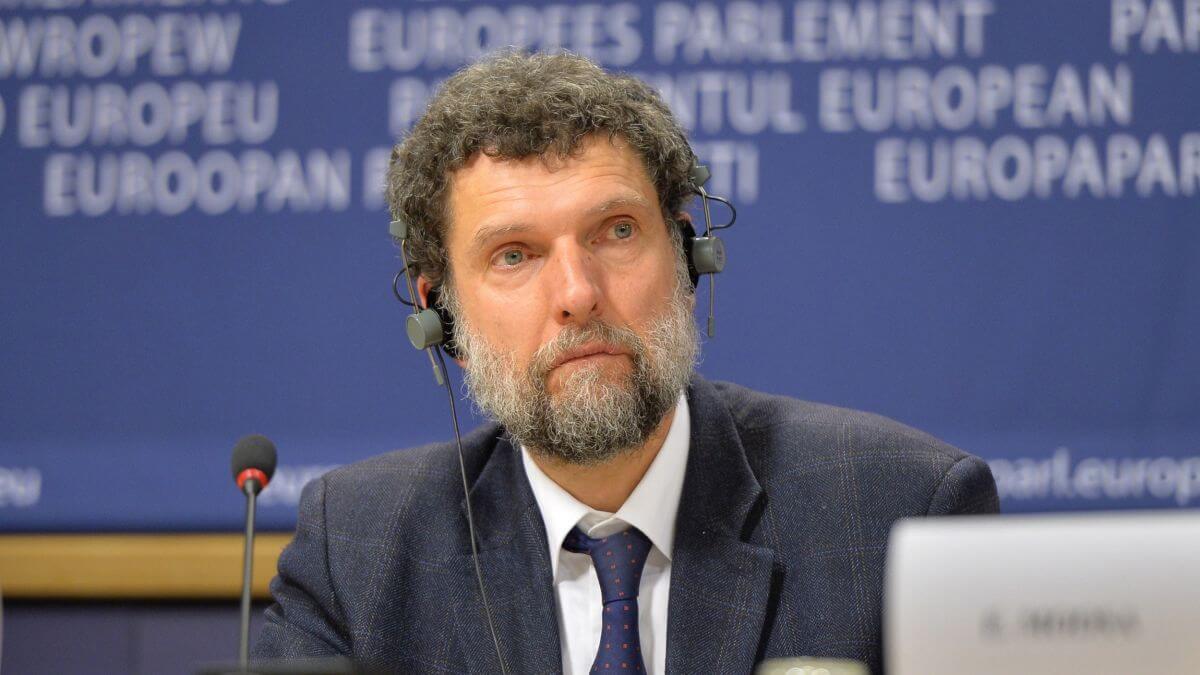The European Court of Human Rights (ECHR) on Monday said that Turkey has failed to comply with the court’s decision in 2019, which called on Turkish authorities to immediately release jailed activist Osman Kavala.
The court said the charges under which Kavala has been convicted, including espionage and attempting to overthrow the government, have not been proven and that the evidence was “insufficient” to prosecute him. It noted that there was an “absence of facts, information or evidence showing that he had been involved in criminal activity.”
The Turkish government's continued unlawful detention of civic activist Osman Kavala seems to reflect President Erdogan's insistence on finding an absurd scapegoat for the massive Gezi Park protests against Erdogan. https://t.co/8hr8bchAgV
— Kenneth Roth (@KenRoth) July 12, 2022
The ECHR accused the Turkish government of depriving Kavala’s liberty, adding that the “actual purpose of the impugned measures had been to silence him and to dissuade other human-rights defenders.”
The ECHR’s remarks came two months after a court in Turkey sentenced Kavala to life in prison for allegedly attempting to overthrow the government by financing the 2013 Gezi Park protests. The Gezi Park protests erupted after the government decided to remove the park, one of the few green spaces in Istanbul, for an urban development project.
4/. “I believe this @ECHR_CEDH decision will give strength to those members of the judiciary who continue to act in accordance with the rule of law despite political pressure”#OsmanKavala’s statement in response to the ECHR infringement ruling delivered ystdy.@FreeOsmanKavala https://t.co/cx2xG8o5Ba pic.twitter.com/O9gFFlpUN8
— Stefan Simanowitz (@StefSimanowitz) July 12, 2022
A statement released by Kavala on Thursday said the ECHR remarks revealed the “unlawful practices and political influences on the judiciary still continue.” He added that the Turkish government uses laws in an “arbitrary fashion with political motives.”
“I believe that this decision will give strength to those members of the judiciary who continue to act in accordance with the rule of law despite political pressure,” he stated.
The Turkish Foreign Ministry called the court’s remarks “unfortunate” and said that the ECHR is “biased” against Turkey. Foreign Ministry spokesperson Tanju Bilgiç noted that the court’s decision “failed to meet our expectations [and] once again called into question the credibility of the European human rights system.”
Kavala was arrested in 2017 over his alleged involvement in the protests against President Recep Tayyip Erdoğan’s government and has been in jail since. Erdoğan has also accused Kavala of financing the 2016 military coup attempt and of funding anti-government organisations. Although he was acquitted of all charges in February 2020, an appeals court overturned the verdict the following month.
The European Court of Human Rights decided in 2020 that Osman Kavala was being held unlawfully. Kavala remains in jail under new, but also fabricated charges. If Beştepe Palace fails to comply with ECHR’s binding ruling, Turkey will probably be ejected from the Council of Europe. https://t.co/gdDA3s8nfk
— Timur Kuran (@timurkuran) July 12, 2022
A supporter of political freedom and the role of civil society organisations, Kavala has made significant contributions to the establishment of several political, social, environmental, and cultural NGOs since the 1990s. He is also known for his strong support for Turkey’s brand of secularism and his efforts to harmonise relations between the Turkish Muslim majority and non-Muslim minorities like the Armenians and Kurds, something which landed him in trouble with Erdoğan’s government.
In 2019, the European Court of Human Rights (ECHR) called on Turkey to release Kavala, saying the arrest was meant to silence him and that his arrest was not supported by any evidence of an offence. In September, the Council of Europe (CoE) said it would start infringement proceedings against member-state Turkey in November if Kavala was not released. Turkey’s refusal to abide by the ECHR’s decision could lead to Ankara’s suspension from the CoE.
.@ECHR_CEDH found that failure to release #OsmanKavala revealed a lack of good faith on the part of the authorities & his conviction was based on the same facts previously examined by the #ECtHR.
— ARTICLE 19 ECA (@article19europe) July 11, 2022
Human rights group Amnesty International also joined the ECHR in censuring Turkey for failing to comply with the ruling. “Turkey’s continuing inaction compounds the egregious suffering of Osman Kavala and his family,” Amnesty said on Monday. “Kavala’s case is emblematic of the clampdown on civil society and the rollback in human rights protections that affects everyone in Turkey,” it added.
Amnesty has previously called the conviction of Kavala “unjust” and based on “farcical charges without any evidence.” In June, the organisation declared Kavala a “prisoner of conscience.”

